In our second Glass Candle Dialogue, Petra and I, Luka, delve deep into “Stormborn”. There was much to discuss, so the following conversation goes on for about 4000 words, roughly half of which is about Theon and the sea battle that closed the episode.
Fair warning: feels were had.
Luka: So … initial thoughts?
Petra: Well. This episode destroyed me, emotionally. I knew whatever happened with Theon and Yara was going to hurt, and it hurt even more than I expected. So, good job writers! On the other emotional end, there was Missandei and Grey Worm’s scene, which was so sweet and tender. Grey Worm finally learned “the Common Tongue.”
Luka: Ha!
Petra: I’ve been sitting on that for two days.
Luka: “The Uncommon Tongue,” sadly.
Petra: [Breaks down in laughter]
Petra: You got your thing too. You got your dose of Jorah.
Luka: I did. Up-close and more personal than even I wanted.
Petra: What about that greyscale-to-pie transition?
Luka: They’re getting pretty creative lately with editing, especially transitions. We saw a bit of that last season, with Bran’s visions —young Hodor to old Hodor, and baby Jon to old Jon. These transitions aren’t workman-like; they have an actual storytelling purpose. Sometimes comedic. In this episode, Jaime mentions that he can think of no better man than Randyll Tarly to be Warden of the South, and then we cut to Sam. It reminds me of Aemon’s “A Targaryen alone in the world is a terrible thing” followed by Jon showing up.
Luka: It’s a great example of a transition with purpose. It doesn’t just have a narrative meaning. It makes the episode feel whole, like a single story. This season feels much more like an intricately designed puzzle by David & Dan. Even when they were inventing scenes or entire storylines, previous seasons felt like an adaptation; the scenes were put next to each other in a way that made sense to some extent, as they do in a book, but the language of cinema was rarely used to connect them, at least not to its fullest extent. You wouldn’t lose much by watching a particular storyline’s scenes plucked out from the show. For example, you could watch Dany’s entire Slaver’s Bay arc from beginning to end in isolation, because other storylines rarely enhanced hers in any way. It’s not just that the characters are more connected through the story now — they are connected through editing, through the language of film.
Petra: One of the benefits of having fewer and more tightly written episodes is that each shot is more significant. If they linger on an image, you know it’s intended to mean something. They don’t have time for extraneous moments and the thematic threads feel stronger. For example, there was a theme of cyclical storytelling in this episode. Whether it was paralleling the past or characters returning to former versions of themselves – for better or worse. The episode, titled “Stormborn”, starts on a stormy night on Dragonstone, just like when Dany was born.
Luka: Tyrion spells it out for us, too: “On a night like this, you came into the world.”
Petra: Honestly, I have a list of callbacks: “All dwarves are bastards in their fathers’ eyes”, deliberately using a line from the first episode of the show to help with the story; Daenerys calling Varys out; Jon and Littlefinger in the crypts, like Ned and Robert, and of course Jon choking Littlefinger like Ned did.
Luka: And Hot Pie! Not just his person, but his words. So many references! Baking pies continues being his main topic of conversation. Also, Hot Pie has a special ability to never learn from his mistakes. Back in season two, he believed the armor made the knight, even though, as Gendry pointed out, “any idiot can buy armor.” Yet, after all this time, when discussing Brienne, Hot Pie “figured she was a knight ’cause she had armor on.” Oh, Hot Pie! It wasn’t all callbacks, though — there were lots of loose ends being tied this episode: Melisandre, the only as yet unaccounted for main character, turning up again; Missandei and Grey Worm finally getting it on…
Petra: The characters themselves seem to be looking back to the past much more frequently, too, such as Sansa counseling Jon not to go to Daenerys because of what happened with their grandfather Rickard and the Mad King. We’re seeing a lot of talk about the past, about how much these characters parallel their parents, and when counselors tell Daenerys how to rule and how not to rule, it’s about how she can avoid being her father. And, of course, Arya deciding to go home, which was her goal for a few seasons before she got sidetracked, with its own emotional callback: “That’s not you.”
Luka: And Nymeria herself, not seen since “The Kingsroad” in season one, is a loose end being tied and a kind of callback herself. Speaking of Arya…
Petra: I genuinely don’t know what’s happening to this girl. I loved the way Maisie’s acting, as well as the editing and music, conveyed the switch in her brain that turned on when she learned that Jon and retaken Winterfell. At first she’s impassive, looking almost directly into the camera. The editing cuts between close-ups of Arya and Hot Pie. There aren’t many shots of them together. And then she realizes Jon’s back in Winterfell. Maisie Williams really sells that moment as the Stark theme swells. She has this look of: “Why am I here? What am I doing?” I could hear her thawing, almost, I could hear the ice cracking — the “stone heart” melting, if you will.
Luka: I see what you did there!
Petra: And then of course, talking about meaningful shots, she touches Hot Pie on the shoulder.
Luka: Yes, after barely looking at him in the eyes for their entire conversation.
Petra: Agh! Man, that got me! But then we have this moment with Nymeria which seems to go in the opposite direction.
Luka: That’s the question, isn’t it. I think it’s a bit open to interpretation. The scene hit me pretty hard. Maisie Williams is becoming a truly great actress; she was acting against nothing, and it was impressive. But what does “That’s not you” mean for Arya’s character? We could interpret it optimistically: Nymeria has her own pack now, and that’s a reminder that Arya must return to her pack, to Winterfell. The more pessimistic view is that maybe Arya will never be able to settle in civilized society again, that she’ll chafe against the expectations of her as a Lady back in Winterfell, and so she’ll have to forever roam the wildlands like Nymeria.
Petra: Clearly there was a parallel intended between Nymeria and Arya, but the meaning that we’re meant to take from it depends on whether we’re focusing on Nymeria’s relationship with Arya or Nymeria’s with her wolf pack. The Starks are Arya’s pack and Nymeria is with her pack – the symbolism there seems straightforward. But then what does it say about Nymeria (and therefore Arya) that it’s not in her nature to remain with her human companion? It makes me wonder if Arya will reunite with her family but have to leave them in the end, as Nymeria left her. Then there’s the line, “The lone wolf dies but the pack survives” from the first trailer, which has to pay off somehow. It’s coming.
Luka: I do wonder about that. I think they included Nymeria’s wolf pack partly as a tool for dramatic tension but also as a nod to book readers, which was nice. But, if the scene is to be taken as worrying foreshadowing of how difficult Arya will find it to fit in back home – which I think writer Bryan Cogman mentioned – wouldn’t it have made for a cleaner parallel between Arya and Nymeria if she had no wolf pack, if she was alone?
Petra: I think so. For Nymeria, sticking with her pack means staying in the wild, while leaving her pack would mean accepting domesticity with Arya. But with Arya, it’s the opposite: sticking with her “pack” means accepting domesticity; and the alternative to Winterfell would be accepting the wild. So I don’t know. But I’m happy that I don’t know what’s happening with this girl. Because this could so easily be a straightforward story about a “ne’er-do-well who’s gone off the deep end” or else a “girl who’s going home.” They’re walking a very fine line with her.
Luka: Then there’s the strategic meeting on Dragonstone later on, which is the best example yet of disparate characters coming together at last (or again, in some cases) which is what David & Dan have been promising for years. So I had high expectations for this scene, and it did not disappoint. In the back on my mind, I feared D&D would ignore the pre-existing relationships between some of the characters for the sake of a straightforward narrative.
Petra: Yeah. I was really worried they were going to become little exposition robots: say their piece; maybe be snippy; but that they’d sacrifice character moments for the sake of time. And they didn’t!
Luka: Instead, we got as much out of them as possible. Especially with Tyrion bringing up Myrcella, clashing with Ellaria. They shouldn’t get along, and they don’t. And, of course, Varys. That was a loose end that really needed to be tied up, and a marvelous scene for Conleth Hill. Many people thought, myself included, that Tyrion should have asked some of these questions back when Varys revealed he was a Targaryen supporter in the season five premiere. But right now I believe I might retract that criticism, just because it’s much more emotionally resonant when it’s Daenerys asking these questions, since they’re all about her.
Petra: Yeah, and I liked how honest everyone seems to be. In King’s Landing, a place of corruption, everyone holds their cards close to their chest, and I feel like Daenerys is learning from other peoples’ mistakes and going “No, no, no. We’re all going to share our feelings. And you, Varys, you’re a wild card. Tyrion, get over your niece. There are no secrets.” And Varys was completely straightforward with her too, about his priorities and why he supports her.
Luka: I personally believed Varys since he told Ned in season one that he served the realm, just because Conleth Hill is that convincing. And every time he’s said it since my belief in him has only strengthened. This was the culmination of his character’s philosophy. He literally has a speech about “the people” — Varys is very ahead of his time.
Petra: I love the fact that Varys has a coherent reason for supporting Daenerys. It’s not “Mhysa!” or “Khaleesi!” or “I want to get in your pants!” It’s, “You’re the realm’s best chance, so I believe in you.” He laid out a very logical reason to support her over anyone else, which makes me go: “You know what? Fair enough. She’s not my favorite character, but you make sense, Varys.”
Luka: The Dragonstone scenes were among my favorite in the episode. You have so much history between all these characters! And I’m pretty sure we’ll have much more of that kind of thing this season. I’m really looking forward to that.
Petra: Me too!
Luka: Do you know what I’m not looking forward to?
Petra: Euron being horrible to Yara?
Luka: Yes!
Petra: Yes?! Oh, what a spot-on guess! God, this is gonna hurt.
Luka: THAT’s a segue.
Petra: Oh, yeah, I noticed, thank you.
Petra: My hands were shaking after that final scene. It was quite something.
Luka: As you know, I’m a big fan of the Burlington Bar reaction videos, and you were lucky enough to not only be there but to feature prominently. At first I found your reactions funny, but by the end it wasn’t funny anymore. I felt genuinely sad for you. You were shaking! With your head between your arms!
Petra: The Burlington Bar thanks you for your endorsement. Yeah… I thought it was clever how they set up the lingering effects of trauma on Theon’s behavior. In the Dragonstone scene, they’re all in a circle — except Theon. He’s against the wall. He never speaks. He’s out of focus. He’s there, but he’s very much apart, which is exactly how he interacted with the Boltons when he served them at dinner. Later, when Ellaria tells him to get her more ale, he obeys her without question. Yara says “He’s not your servant” but he says “It’s fine.” They took the time to give us a close-up of Theon Greyjoy pouring someone a drink, of all things. And then, of course, Yara established him as her protector. Ellaria’s flirtatious description of his job foreshadowed exactly what ended up not happening: “So, if anyone gets too close, you’ll have to intervene?” Then there’s the battle scene itself which was this gloriously cruel anticlimactic build towards Theon’s failure. He keeps looking around for her, keeps trying to get back to her. And then, of course, when he does, he can’t actually help her.
Petra: I like what Whelan said in her interview with Entertainment Weekly about Yara’s reaction to Theon, since, without dialogue, there’s so much room for interpretation.
“We think Yara has managed to get Theon back, they had all these scenes of solidarity and camaraderie in season 6. It seems like he’s back, then there’s that wavering faltering moment that Alfie plays so beautifully. Yara’s just willing him, ‘no, no, stay with me.’ It’s just so heartbreaking!”
I’m really happy that they gave trauma consequences, that they made it matter. And that they did their research, apparently. Initially, I thought it was unrealistic how suddenly Theon was triggered but I was politely informed on Twitter that, actually, that’s exactly how triggers work and that I was conflating triggers and panic attacks. On the “Inside the Episode” video, Weiss said that he and Benioff realized they needed to bring back Reek as they were writing, which I think is interesting.
Luka: Usually D&D are more the architects, by the necessities of the production, while Martin is more of the gardener — D&D have a goal in mind and they will do whatever is necessary to reach that goal, even if it sometimes means bending the characters a bit. Martin will let the story go wherever if that’s where the characters take it, which is a danger onto itself as we have seen, but it does feel more organic. In this case, D&D and Cogman had what was very much a gardener moment. They set up this sea battle, and they realized while writing what the character would do.
Petra: I genuinely thought that we’d seen the last of Reek in Volantis, partly because Alfie Allen, sneaky little bastard, told Variety that Theon has “moved on” from Reek. I don’t like the idea of Yara getting captured as a punishment for her mistakes, but I do like that her assumption that she could fix her brother came back to bite her. She’s taking care of him as best as she knows how, but she genuinely thought she’d managed to tape him back together with ale, an ultimatum and a kiss. And that’s not how that works.
Luka: I was prepared for Theon’s mental state not to come back as a prominent issue after Volantis. I know you have some conflicted feelings about the Volantis scene — you love it, but you had some problems with it. But I wonder whether some of that has vanished. Your problem wasn’t that Yara wouldn’t act that way; it was that the show was assuming that her approach would work, right? So, in a way, the Volantis scene probably is less problematic now because we see that she didn’t magically heal Theon. I don’t know if you have reevaluated that scene since watching “Stormborn” or not.
Petra: I have, and I like it a lot more now because we know now that Yara’s inadequate approach has consequences. It’s a lovely scene, but the actual, long term ramifications of what her brother’s been through are never going away. The transition from Reek back to Theon was a little rushed in the show, I felt. Theon snapped out of Reek-mode at the end of season five, insofar as he stopped viewing Ramsay as an omniscient god. I didn’t love that. So, the fact that we got a painfully realistic trigger scene kind of took a little brush and cleaned up a lot of the problems that I had with Theon’s post-Reek storyline.
Luka: It was difficult to see. Euron calls him a cockless coward, just as Euron’s mutes are cutting off the tongues of their fallen enemies. Is there a better trigger of Ramsay’s horror than that?
Petra: That’s a good point. There’s fight mode, and then there’s… something else. At first we think it’s a cliche standoff, that he’s hesitating because he doesn’t know what to do. And then he starts getting upset. We see the mutilations and he starts twitching. And we all go, “Oh. No. No! No! We didn’t see this coming! We thought we knew where this was going and now it’s taken this really sad turn!”
Luka: I think it’s a testament to Alfie Allen’s performance that in a few seconds everyone understands exactly what’s happening. His facial contortions, his posture — everything changes. Every little thing that made up this new Theon —which isn’t like the old Theon— slips away and suddenly we have Reek, who feels like a completely different person. But it isn’t; it’s him. That’s been there all along, hidden underneath.
Petra: It’s one of the advantages of having Theon less physically mutilated by Ramsay than he is in the books. It gives the psychological damage more of a physical manifestation. We understand that his hunching and twitching is psychosomatic. Reek’s persona isn’t conveyed through prosthetics or wigs but through body language. Because of this, Alfie’s able to communicate the relapse exclusively through the return of a few signature ticks. Look, I just have to say this once in reference to the episode: Alfie Allen is well-overdue an Emmy.
Luka: Yes. He’s more than deserving of it… and I’m pretty sure he’ll never get it.
Petra: He’ll never get it. But I really want to get #EmmyforAlfie to start trending.
Luka: If Lena Headey hasn’t won an Emmy, he won’t either.
Petra: He’s not a star and he’s not a fan favorite. The social media reaction to his storyline has been interesting because it’s been extremely polarized. I can kind of understand why some people found his escape funny, though. It’s a little cartoonish.
Luka: That wasn’t Alfie’s fault, though. That was the flat camera shot.
Petra: No, it’s not his fault at all. And it wouldn’t make sense for Theon to make a graceful dive, because he’s not thinking. He just hurls himself overboard. That said, it reminded me of a scene in Muppet Treasure Island in which a character pretends to be a ghost in order to recapture a ship from pirates. And the pirates are so scared of him that they all jump overboard. The first time I watched the scene (I’m the sobbing blonde,) you know, I got a little upset, so I was looking down for most of it. And then I looked up just in time to see his little body jump overboard. And I went: “Did that just happen?” So I kind of get that it inspired a meme. That said, it’s one of the most emotionally affecting scenes that Game of Thrones has done yet.
Luka: And it’s not just the last few seconds. Any scene that can make me feel anything about the Sand Snakes is an impressive scene. Still, my only problem with the episode is that D&D seemed to have ‘given up’ on the Sand Snakes. I’m not talking about killing them off — that’s fine. I’m talking about doubling down on their annoyance. It’s almost like D&D are saying “we were doing that on purpose all along.” They had two options. They could make us feel, I guess, “happy” about their deaths, or try to make us actually feel something for them. It worked for me as a dramatic scene, because I don’t hate the Sand Snakes. I don’t like them, but I don’t have an overwhelming hatred for them either. But their deaths worked for me because it’s Euron being incredibly brutal.
Petra: Yeah, and it’s a good way of demonstrating his skill, because we haven’t actually seen him fight yet. We’ve seen him talk and list his body parts, which, to be fair, seems to get him what he wants.
Luka: He did it again! He didn’t compare himself to someone else this time, but he did call Theon a cockless coward.
Petra: Yeah, man. This guy’s all about the body. Oh my God, if he loses an eye, I’m gonna laugh my ass off. “You lost something! You can no longer count everything! You’re missing something too, now!”
Petra: Oh, also, a little thing about the score. I adore Ramin Djawadi and he can do no wrong in my eyes but I especially love the way he introduces new motifs into his composition as the characters develop. For example, Jon got a new theme after he came back from the dead and Cersei was given her own mad queen theme (the ostinato from “Light of the Seven”), at the end of last season. Djawadi scored that final scene of Theon floating alone in the water with a variation of the Greyjoy theme. The first two notes (I’m not sure which notes they were, I’m not a musician) were the right ones, but the third was off. It ruined the melody. It felt broken. I don’t think we’ve ever heard it before. It’s interesting that a broken Greyjoy theme is playing after –
Luka: – After the Greyjoy fleet is broken, the Greyjoy family is broken, and Theon Greyjoy himself is broken.
Petra: Re-broken, yeah. So I don’t know if that’s going to be his new theme now. Regardless, really loved the decision to convey a family’s ruin through music.
Luka: To bring this all together to an ending, I have a question for you. Where do you think Theon’s story is headed in relation to Yara, to Euron and to himself?
Petra: I hesitate to say anything because there’s always going to be a disparity between what I want to happen and what will happen. But I think his motivation from here on out is going to be to save his sister. Pilou Asbaek said on Making Game of Thrones that Euron’s “fucking brutal” in the next episode, and Yara’s captured… so, she’s gonna be abused, though who knows how, exactly. If any character is going to get upset that his loved one is getting tortured, it would be Theon. So, I like the idea of him having to work through his trauma in order to save his sister. There’s something really moving about the concept of pushing through your brokenness, not for your own sake but for someone else’s. I’m going to be very interested to see if Yara’s not doing so well psychologically when they’re reunited. Yara’s not been the most tender of sisters, nor does she need to be, but she has consistently been the one who’s tried to save Theon’s sorry ass. I like the idea of Theon being in a position where he has to be the caretaker. See, I’m scared to get my hopes up for anything too specific, but at the same time I never thought we’d see Reek again, so, who knows?
Luka: Exactly. I don’t think you should get your hopes up for specific scenes or shots but after this episode I agree we should expect something as psychologically meaningful and respectful, just because I was as surprised as you that they came back to this. I didn’t expect something as emotionally resonant and deep as we got.
Petra: I’m really happy with this episode.
Luka: Yeah, last year’s finale and these first two episodes of season seven – “Stormborn” especially – feel more cohesive and sure of themselves than pretty much any episode before, except for the few that focused only on a few settings or a single setting. They flow perfectly in an unprecedented way.
Petra: You can feel the passion behind this project, definitely. This episode’s given me newfound faith in the integrity of the writers. Not that I didn’t think they were good before, but I feel like they’re really committing to… to… — FUCK IT, I don’t have a meaningful statement to end this on!
Luka: No, that’s perfect.
The post Glass Candle Dialogue Season 7, Episode 2: “Stormborn” appeared first on Watchers on the Wall.
Via http://watchersonthewall.com
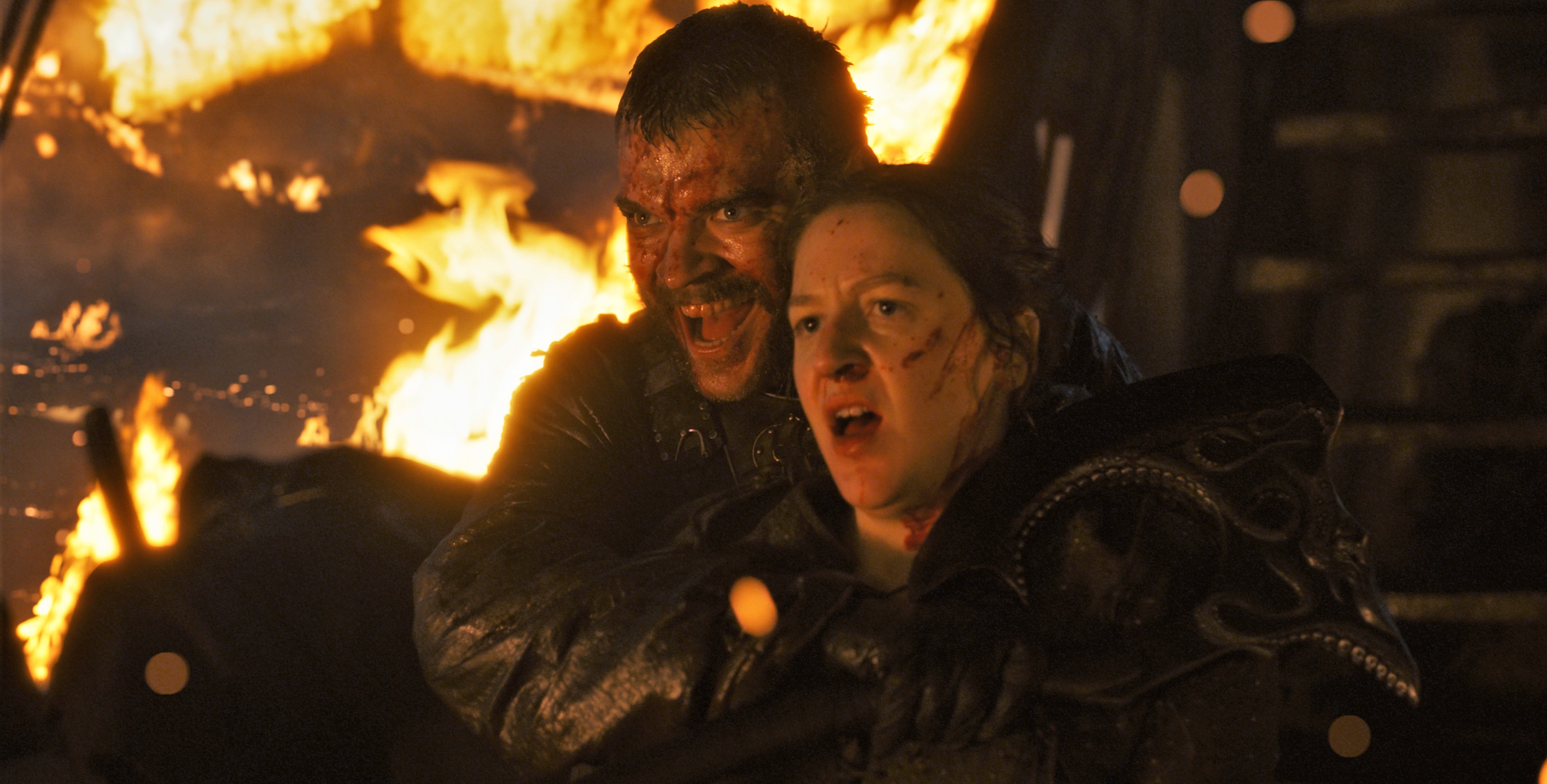
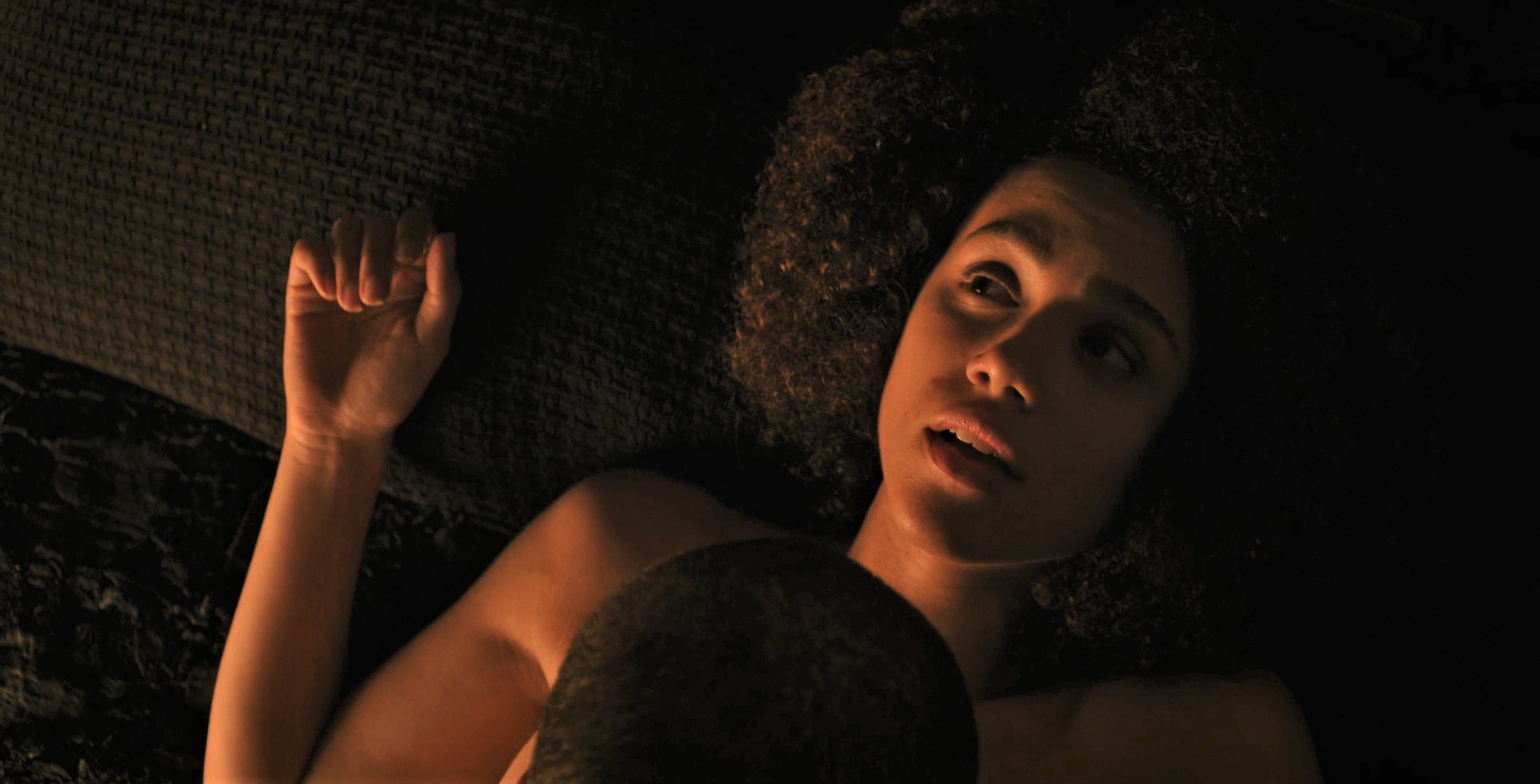
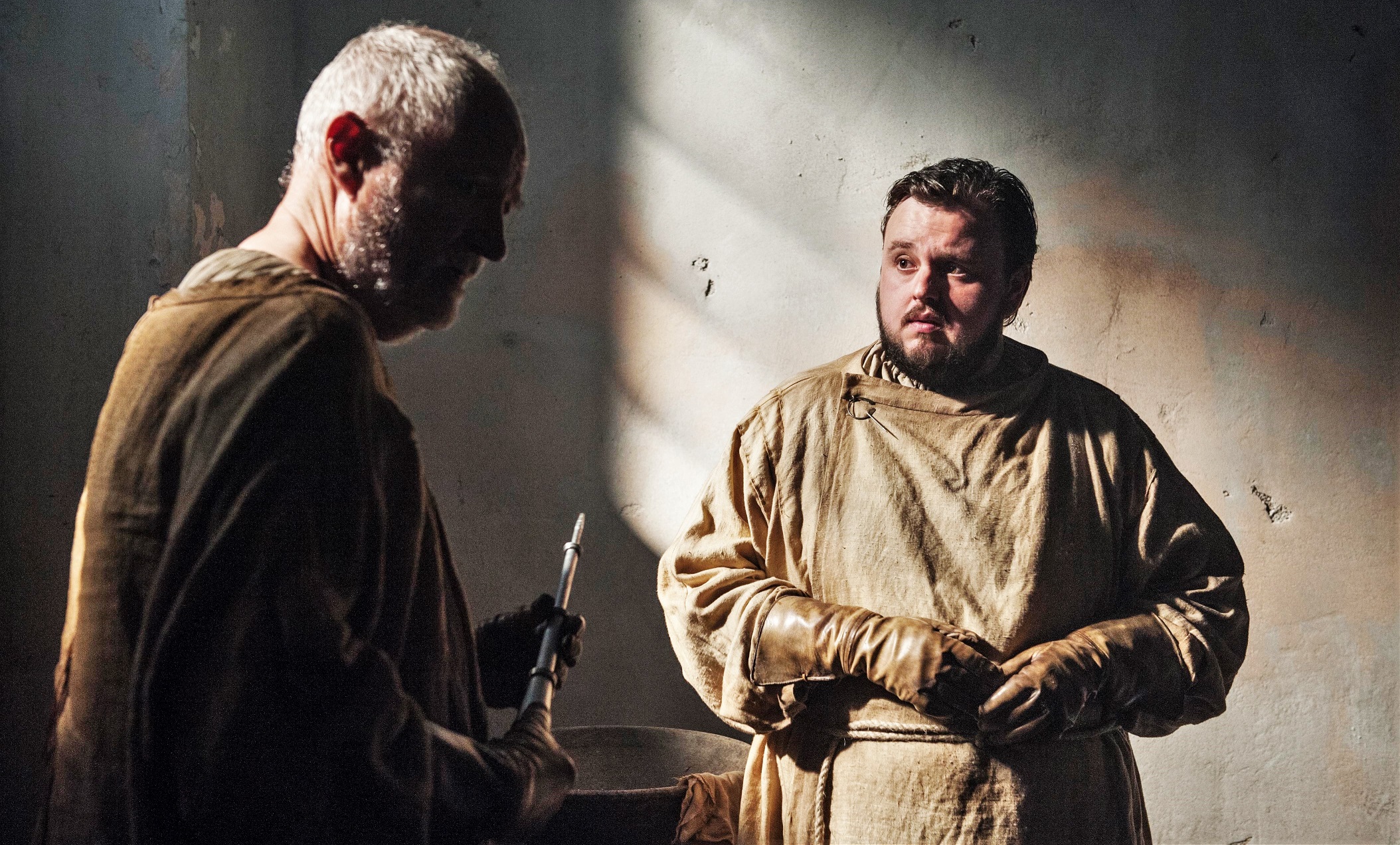
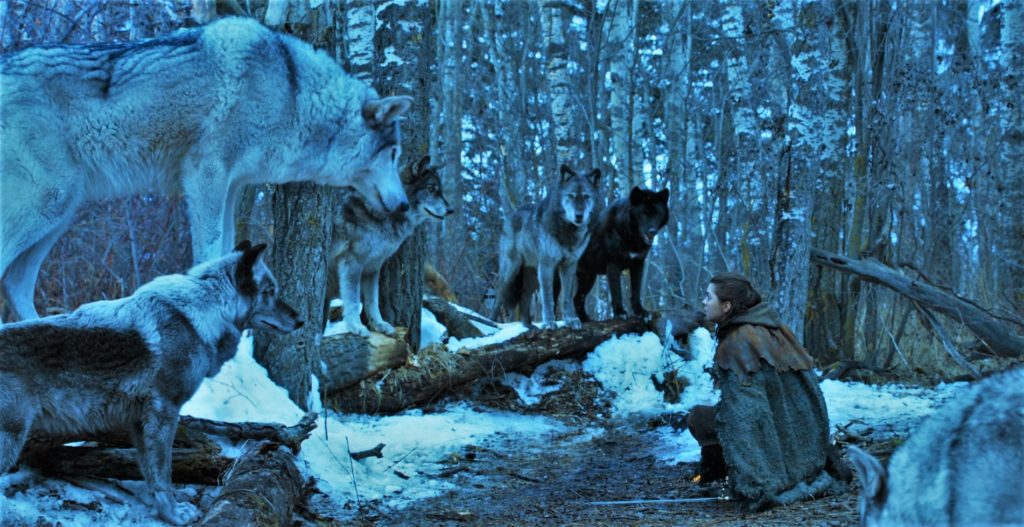
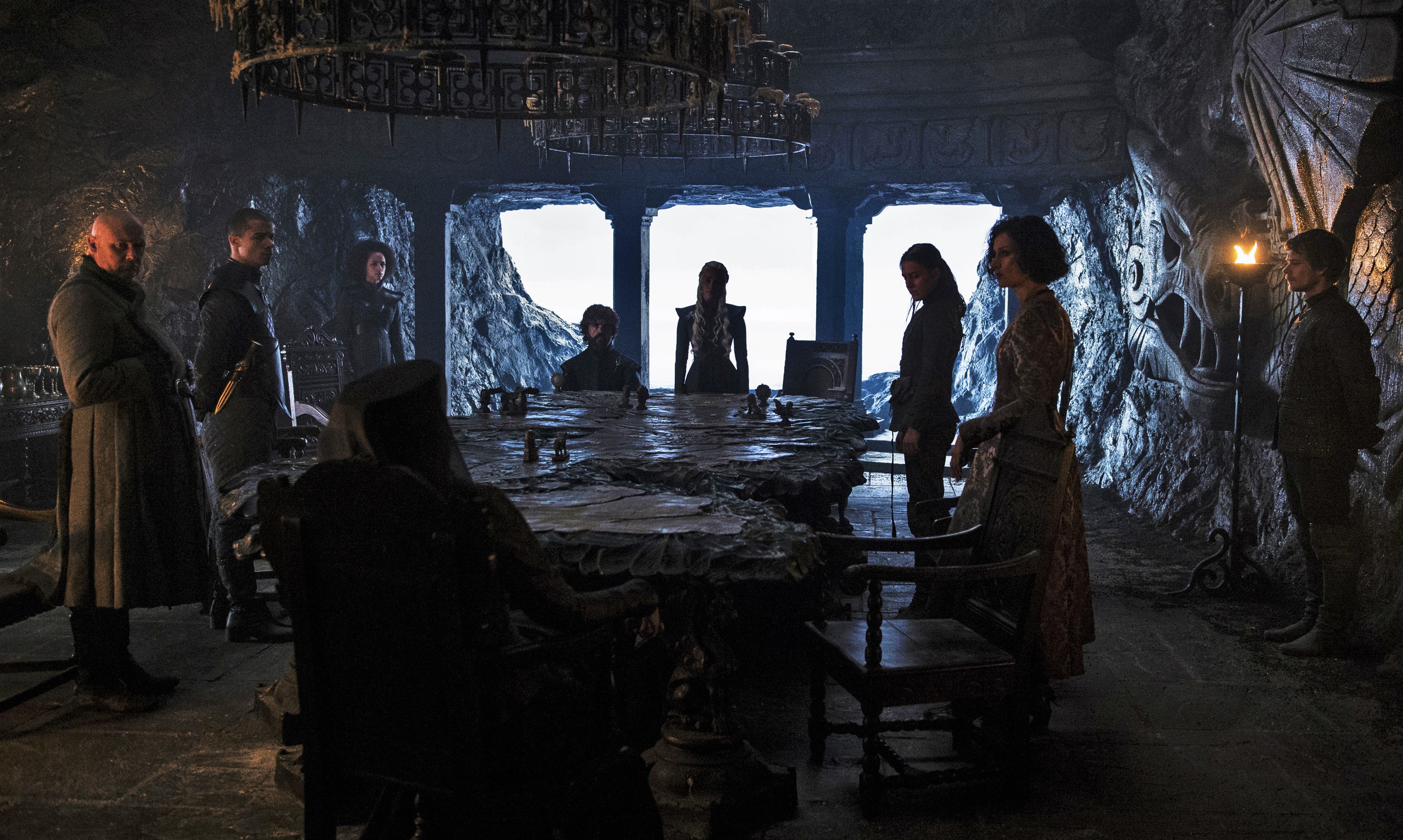
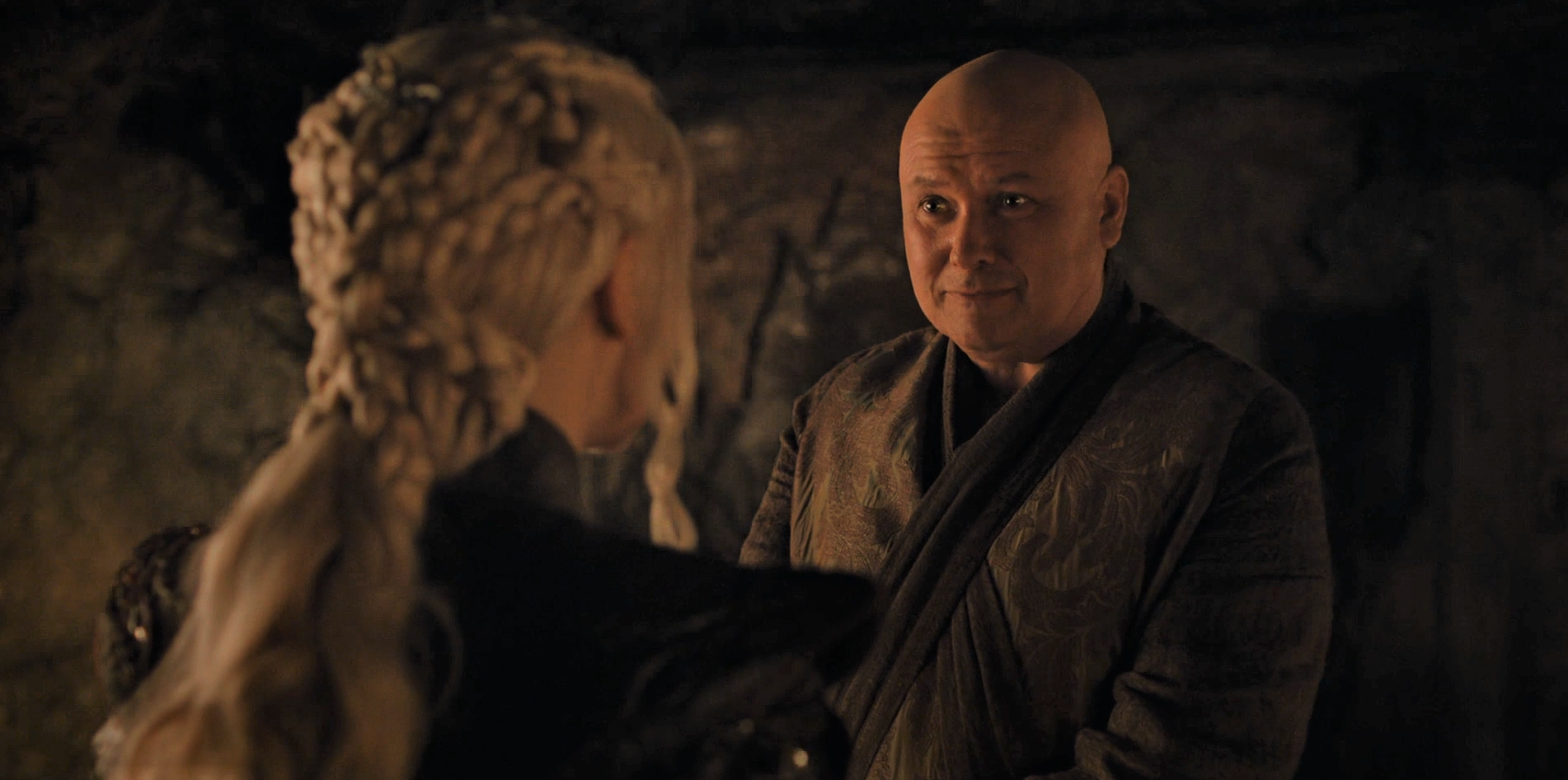
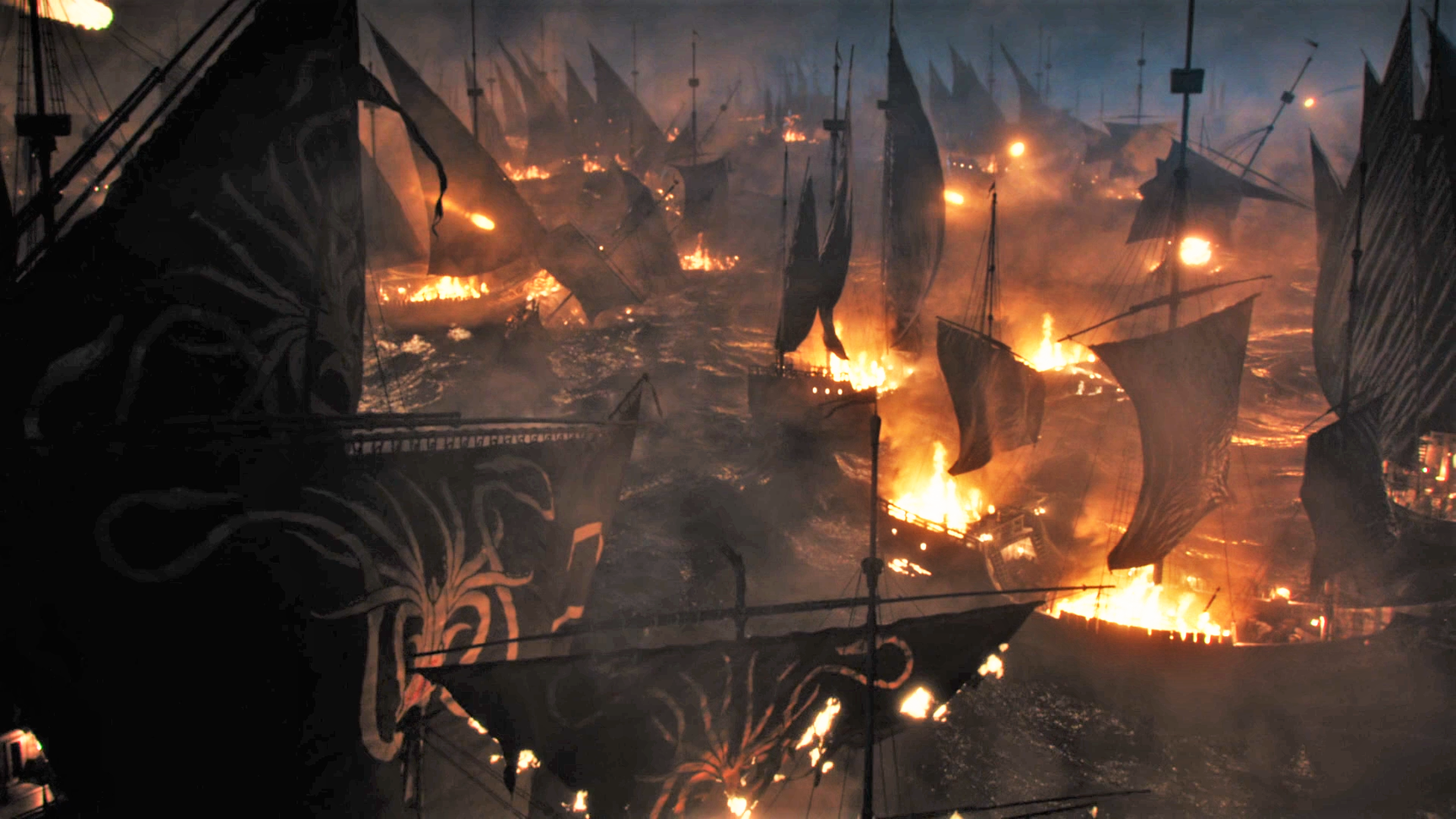
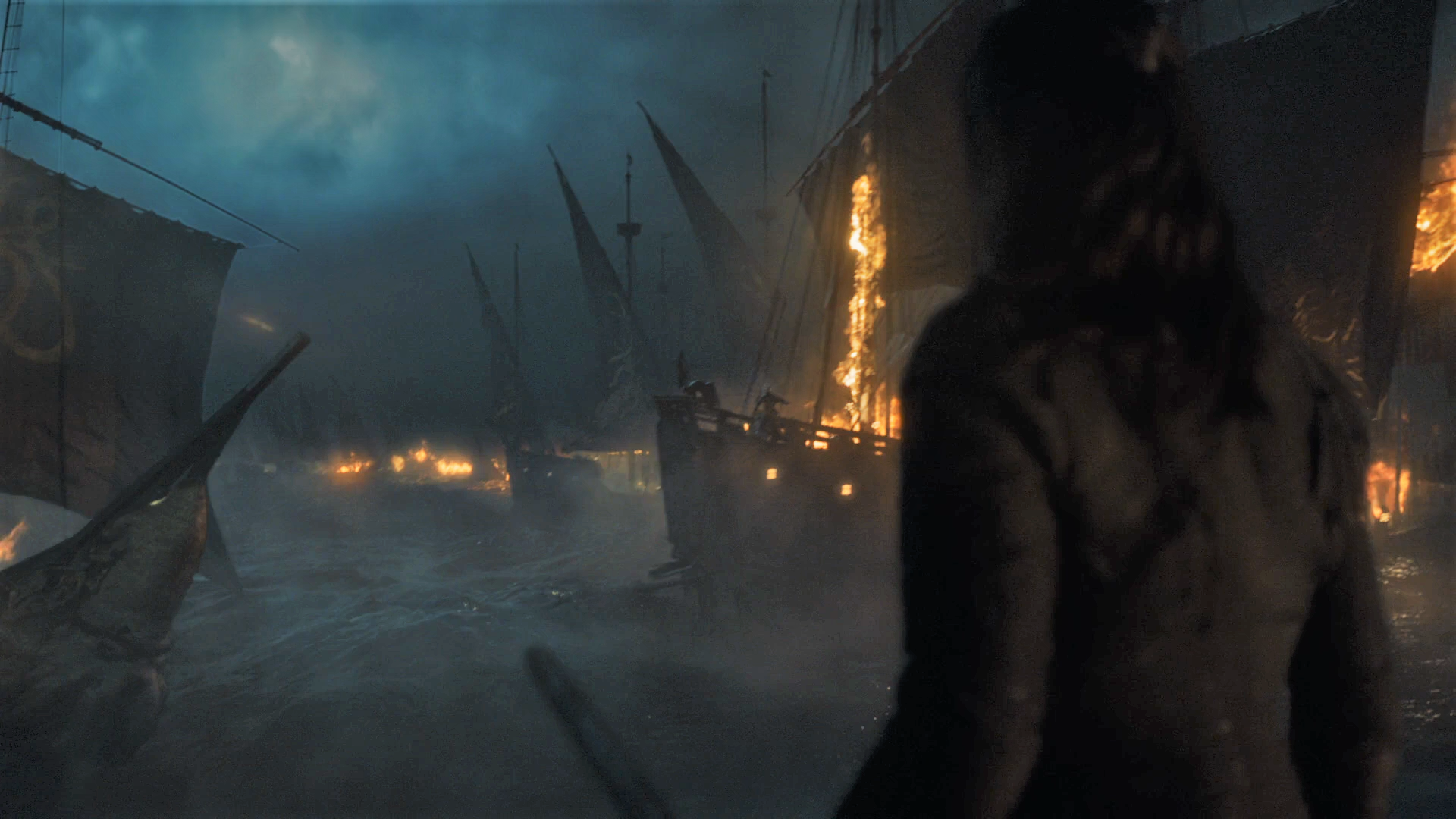
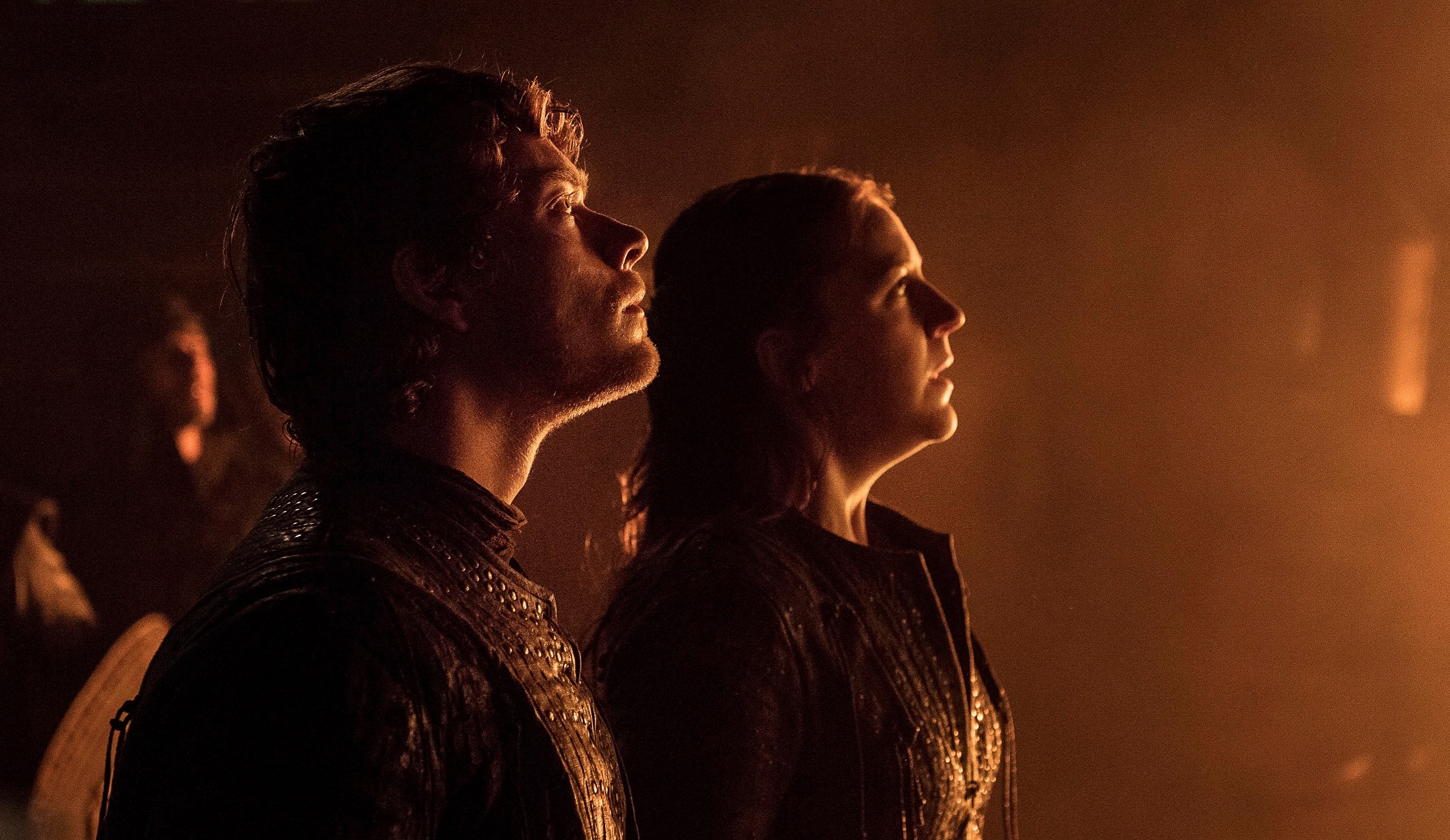
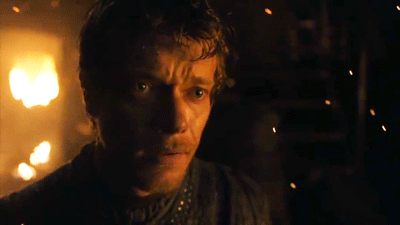
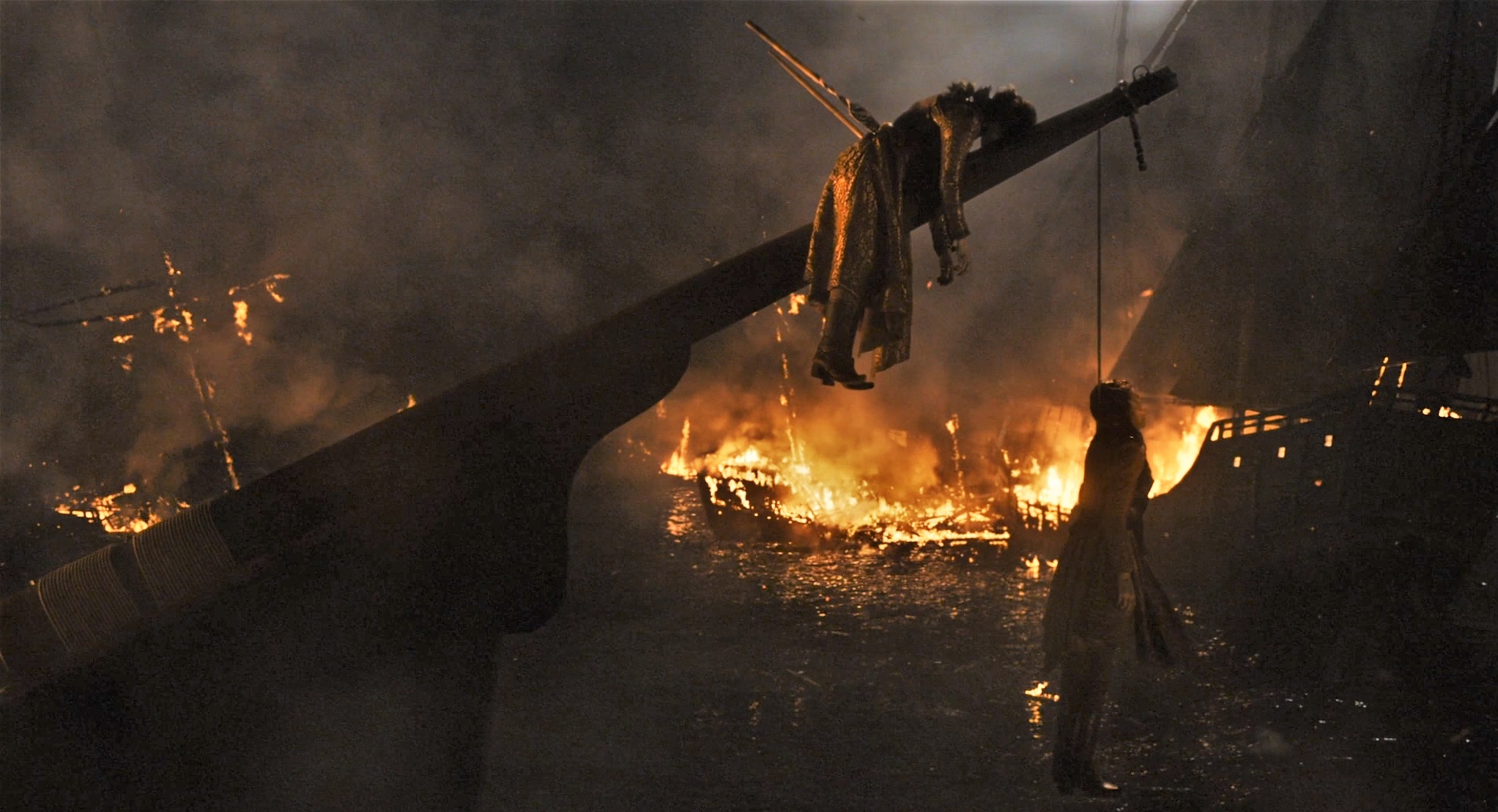
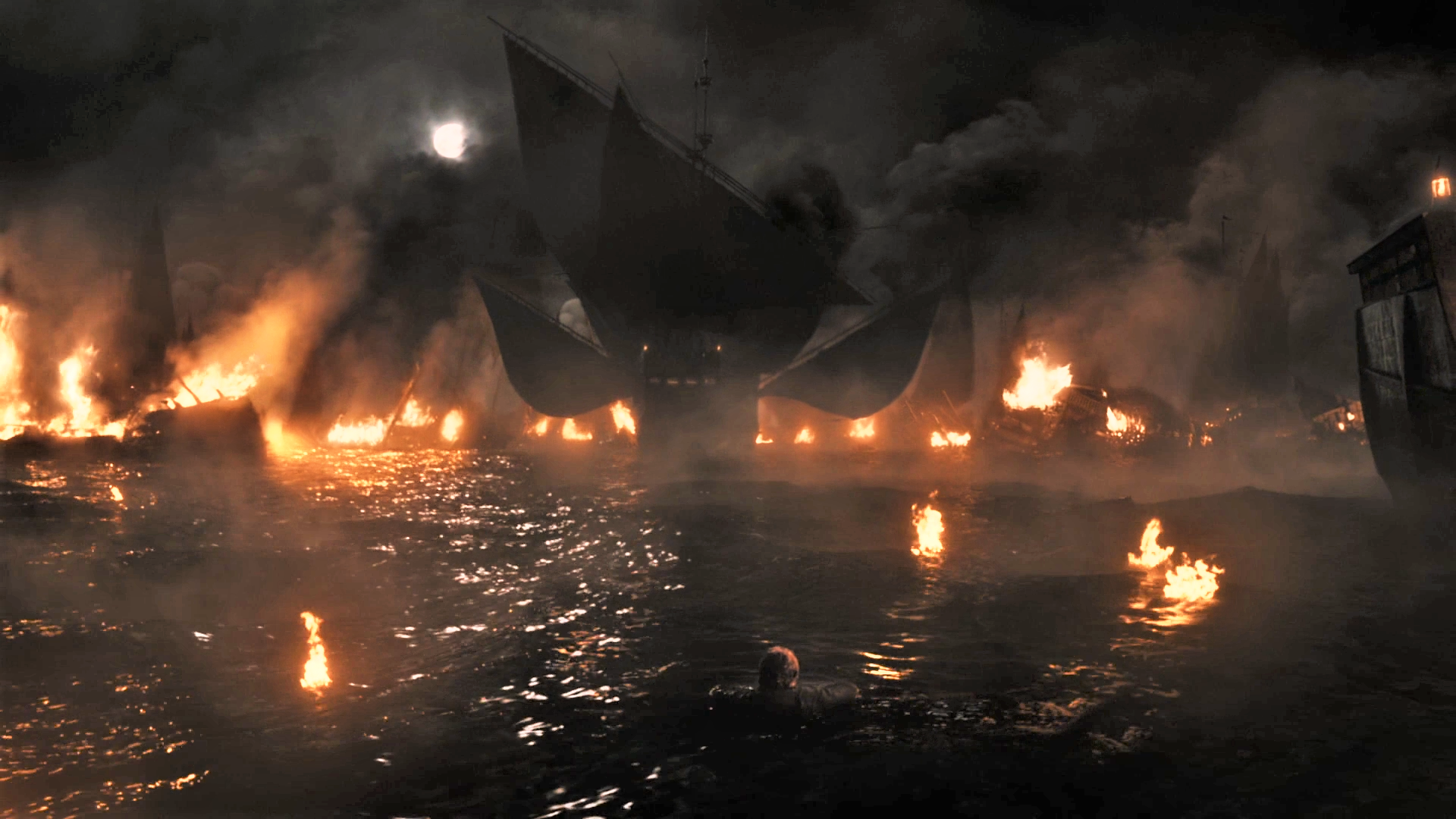
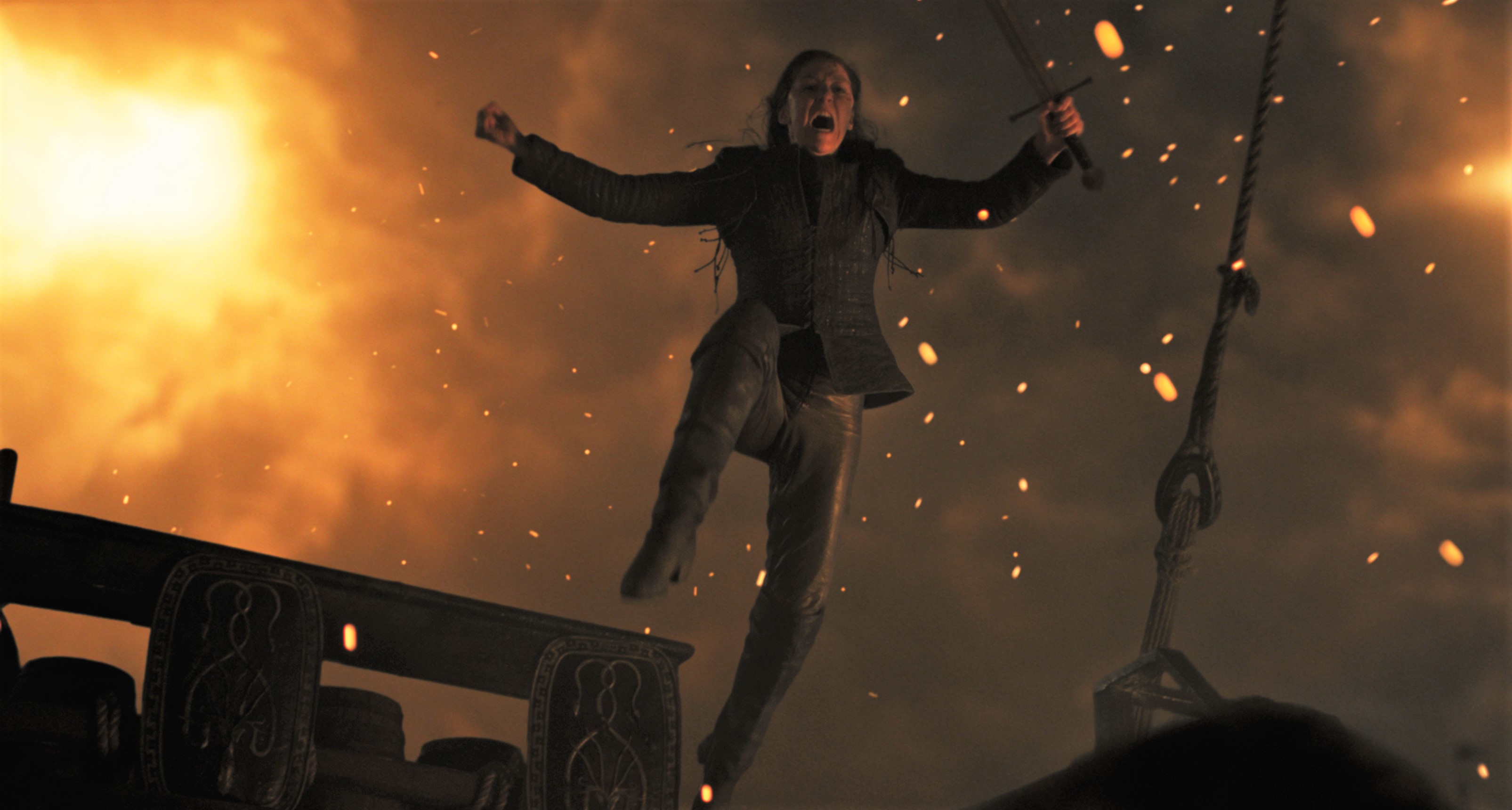
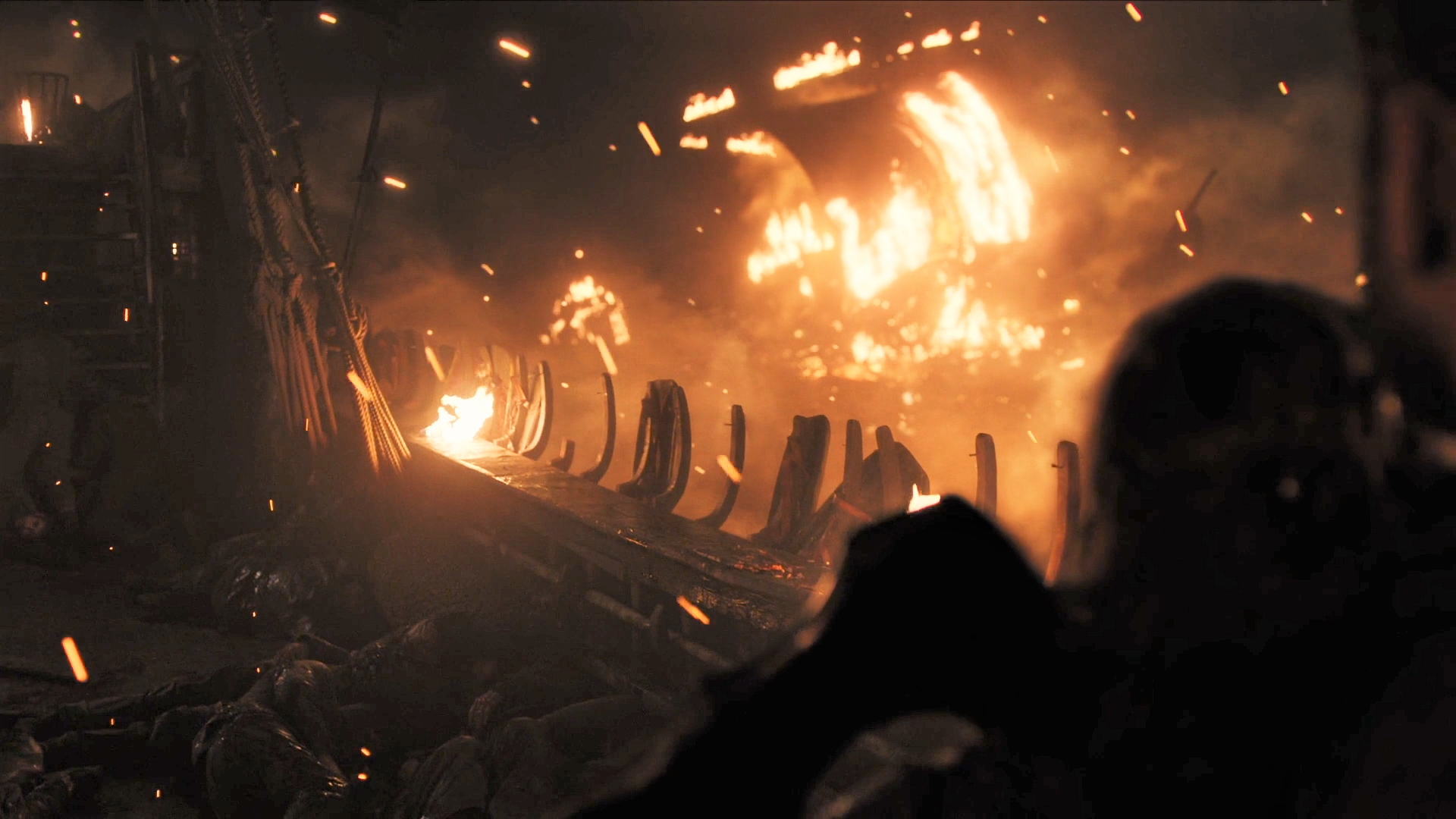
No comments:
Post a Comment